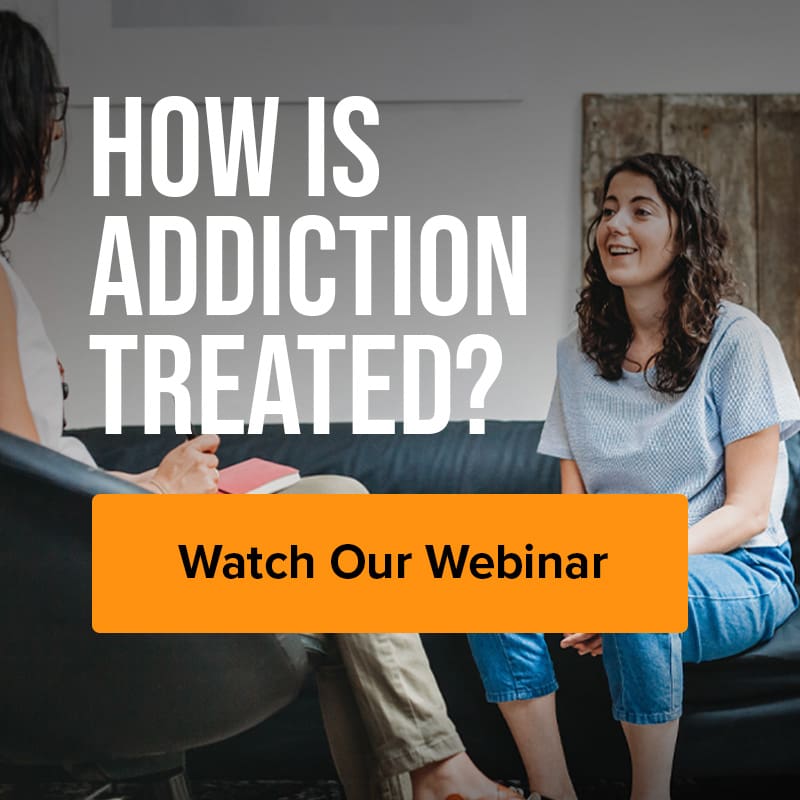Think you or someone you love may be struggling with drug or alcohol addiction? Here are five questions you should ask.
Some people are good at hiding their addiction from the world – and from themselves. But that doesn’t mean the addiction isn’t real or that it isn’t having a real impact on the person struggling and their friends and family.
Addiction means being physically and mentally dependent on a particular substance, which is coupled with the inability to stop taking the substance without incurring adverse effects.
While denial can be an expected defense mechanism, it can often allow addiction to dig itself in deeper and make recovery even more challenging later on. So how do you know if there is a problem with addiction or alcoholism in a functional household?
Here are five questions you need to ask about yourself or someone you care about who may be struggling with an addiction. They can help you better understand the situation and allow you to determine if it’s time to seek help.
1. Can those struggling with addiction also be functional?
The answer is yes. For most of us, when we think about someone who is addicted to drugs or alcohol, we think of the stereotypes and the “rock bottom,” the person on the street who has lost everything, the person resorting to theft trying to get enough money to get one more hit, the stumbling person who passes out on the floor. We know that these people have a problem because it is totally obvious; they can’t function normally and they can’t take care of themselves let alone anyone else.
But what about the vast majority of people with addiction problems? These are people who are functional, who continue to work, who maintain the appearance of normalcy, and who are very good at hiding their dependence on drugs or alcohol. Those who are addicted to drugs or alcohol can often easily blend in, and some are better at managing this behaviour than others.

For the family of a functional addict understanding “the problem” in the home can be enormously difficult, because it isn’t obvious. The same behaviours that allow the addict to mask their problem are often emotional and psychological manipulations that subtly distort reality for themselves and the people around them.
2. How often do you or someone you know use drugs or drink?
Does a glass of wine with dinner need to happen every night? Is it really one glass or does it always turn into two, or three, or the whole bottle? Heavy drinking is defined as consuming eight or more drinks per week (for women) and 15 or more drinks per week (for men). And a recent report from the World Health Organization has found that no amount of alcohol is safe for our health.
When it comes to prescription medication, any time someone uses prescription drugs other than prescribed is cause for alarm. Taking Rx drugs more often, in higher amounts, or in ways other than prescribed are signs of drug abuse. With the enormous number of pharmaceuticals on the market that are addictive, sometimes this may take the form of “needing my medicine” even after the acute medical condition has passed.
3. Are they drinking or taking drugs to affect a result?
After a stressful day, you might need to relax and unwind to transition from work or school to home. But what if that relaxation requires a chemical substance of some kind? Is there always a cocktail before dinner or smoking a joint as soon as they get home? Do they need that drink or that smoke in order to function?

Further, are you or a loved one is taking drug or using alcohol for euphoric effect? If so, these are indications that emotional or psychological functions have become dependent on drugs or alcohol.
4. How important is it to consume alcohol or use drugs?
What happens when the addicted behavior can’t occur? If there is no wine in the house to have with dinner, does someone have to run out to the store for a bottle is dinner? If the prescription bottle is empty what happens? Is there a mood change, irritability, panic, or anger? Is it important to make sure that there is always a supply available of whatever it is that is used? If you’ve answered yes to any of these, you or someone you love may been experiencing an addiction.
5. How can you get help for someone with an addiction?
There are many people with addictions who are high functioning than there are those who fit the stereotypes of addicted behaviour because the problem has not reached a crisis point. Often we have a hard time identifying exactly what the problem is. But functional addiction can be a slow poison for the people who live around it, certainly no less damaging than living with someone who is not functional it is just hidden, silent and too often unaddressed. If you feel like you or a loved one is dependent on drugs or alcohol, it may be time to get help.
At EHN Canada, we don’t just help our patients stop using drugs or alcohol. We treat Substance Use Disorder and the underlying mental health conditions to help our patients achieve lifelong recovery.
Our evidence-based approach includes detox, medication management, individual and group counselling with Cognitive Behavioural Therapy (CBT) and Dialectic Behavioural Therapy (DBT), educational lectures, mindfulness, and exercise to help address physical, mental, and social wellbeing.

Our patients work with a team of medical experts who specialize in alcohol use and addiction – including doctors, nurses, and psychiatrists – to build the foundation for recovery. You’ll also be assigned a counsellor who will help you explore past trauma to uncover the root of your addiction.
Explore our Treatment Programs for Addiction and Mental Health Disorders
Struggling with drug or alcohol addiction, depression, anxiety, trauma or other mental health disorder? You can begin your recovery journey at our facilities across Canada and through virtual programs. Find out more about what we treat.




